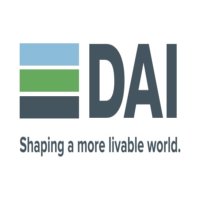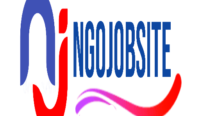
Development Alternatives Incorporated (DAI) is an international development company. For more than 45 years, we have worked on the frontlines of international development, tackling fundamental social and economic development problems caused by inefficient markets, ineffective governance, and instability. Currently, DAI is delivering results that matter in some 80 countries.
Our development solutions turn ideas into impact by bringing together fresh combinations of expertise and innovation across multiple disciplines. Our clients include international development agencies, international lending institutions, private corporations and philanthropies, and national governments.
We are recruiting to fill the position below:
Job Title: Social protection in crises and humanitarian cash transfers specialist
Job Code: B090
Location: Borno
Job Type: Project
Background
- Poverty is widespread in Nigeria with 63% of the population estimated to be multidimensionally poor . In addition, exposure to shocks is high including conflict, displacement, climate change, food insecurity and malnutrition. In 2016, the Federal Government rolled out a National Social Safety Net Programme in partnership with state governments.
- The Social Safety Net delivers cash transfers to recipients in both states to smooth consumption. A revised Social Protection Policy was approved in 2022 by the Government of Nigeria demonstrating support for social protection as a key tool to support the poor and mitigate the harmful impact of shocks. Under this policy framework, preparations are underway to support a significant scale up the government’s social safety net in 2023 and enhance shock responsiveness.
- Alongside government-led social protection, there is a largescale humanitarian response focused on the Northeast of Nigeria. Borno, Adamawa and Yobe (BAY) States consist of a total of 64 local government areas (LGAs) (Adamawa: 21, Borno: 26 and Yobe: 17). Of these, 33 are currently accessible (in western Yobe and Adamawa), 27 are considered hard-to-reach (in eastern Yobe, and most of Borno), and four are fully inaccessible (in north-eastern Borno) as a result of the ongoing conflict. In its thirteenth year, an immediate end to the protracted humanitarian crisis in Northeast Nigeria is improbable, particularly in inaccessible and hard-to-reach areas, the latter of which includes most of Borno and eastern Yobe states.
- The conflict between the government and non-state armed groups (NSAG) is compounded by various other shocks including the socio-economic impact of COVID-19 and climate change in the form of reduced rainfall and rising temperatures, negatively affecting food security, nutrition, and health. As a result, 2.2 million people (57 percent being children) remain internally displaced in Borno, Adamawa, and Yobe states, with 42 percent or one million people residing in camp settings, and 58 percent in host communities . Following the closure of twelve internally displaced people’s (IDPs) camps in the Maiduguri area, and the associated relocation of 140,000 IDPs since 2021, many of the latter have ended up in host communities, as well as camps in their areas of origin, and few have been able to return home.
- The malnutrition shock in Borno and Yobe States is at critical levels. As per the recent IPC Acute Malnutrition Analysis Report covering the period May 2022-April 2023, the number of children in the Northeast under the age of 5 years suffering from acute malnutrition is likely to amount to 2 million between May 2022 to April 2023.
- This includes some 697,000 and 1.3 million severely and moderately malnourished children, respectively. Adverse nutrition outcomes are exacerbated by the region’s Water Sanitation and Hygiene (WASH) conditions. According to the 2022 Humanitarian Need Overview (HNO), up to 3 million IDPs and host community members (59 per cent children and 19 per cent women) have been identified to need lifesaving WASH services. In February 2022, the WASH situation in 45 of the 60 accessible LGAs in the Northeast were found to be critically severe (Phase 4) due to poor public health conditions, including high risks of cholera outbreaks and elevated malnutrition levels. In 2021, UNICEF, with support from FCDO, has successfully implemented a pilot humanitarian cash transfer project to drive WASH outcomes in 11 locations in MMC and Jere, reaching 12,015 families. Gains and lessons learned from this pilot inform the scale-up of UNICEF’s cash transfer programme in the BAY States.
- Ongoing conflict and protection risks, fragmentation across the humanitarian community, and siloed ways of working across the humanitarian and social protection spaces have inhibited the establishment of linkages between the humanitarian response and the social protection system. However, in 2022, the new National Social Protection Policy clearly enshrined commitments to increase universal access to social protection, promote cash+ to enhance outcomes, include humanitarians in the coordination architecture alongside development actors, and uphold international humanitarian law and humanitarian principles. As the Government seeks to increase coverage of the Social Safety Net and enhance shock-responsiveness, there are opportunities for humanitarians to support increased access to social protection in the communities where they work and inclusion at a pivotal moment in the evolution of the social protection system in Nigeria.
- This consultancy is critical to ensure UNICEF has a robust understanding of risks and opportunities for recipients of humanitarian aid and provide specialist support to operationalize UNICEF’s vision.
Recipient of services:
- UNICEF Emergency Response and Social Protection teams.
Other beneficiaries of services:
- WFP, Emergency Response and Social Protection teams. Social Protection Development Partners Group, Nutrition Sector, and Humanitarian Cash Working Group. Government of Nigeria Social Protection System.
Scope and Responsibilities of the Role
The consultant will undertake the following activities under the overall guidance of the Emergency Manager:
- Assess available documentation and standard operating procedures, and consult UNICEF, WFP, and FCDO to articulate a shared vision and objectives in a brief inception report with a clear workplan to guide the consultancy on the basis of agreed timelines.
- Conclude a data-sharing agreement with WFP, and/or, if warranted, a Memorandum of Understanding to enable integrated targeting of beneficiaries and data protection, and use of joint mechanisms to ensure accountability to affected populations (e.g., via complaints and feedback mechanisms, integrated delivery of assistance), including regarding sexual exploitation and abuse or gender-based violence
- Lead a technical assessment for CVA across sectors to assess its feasibility as part of the humanitarian response, including in coordination with WFP, and for the Rapid Response Mechanism
- Follow up and provide technical guidance on ongoing and planned CVA interventions in BAY states including development of tools (for baselines, monitoring, etc.) and analysis on CVA
- Provide capacity building for program staff: Train relevant staff and implementing partners on CVA tools
- Guide the roll out of UNICEF’s Humanitarian Cash Operations & Programme Ecosystem (HOPE) , in coordination with the Emergency Team in Abuja
- Assess feasibility and effectiveness of safety nets / social protection systems in Yobe and Borno States: Undertake a diagnostic assessment of the social protection and humanitarian cash transfer landscape in BAY States, to comprehensively understand the role and position of key actors and partners, and to serve as basis to identify areas of opportunities for UNICEF and complete a robust state-level assessment of risks and opportunities for linkages between humanitarian action and the social protection systems.
- Share learning with the humanitarian subgroup of the Social Protection DPG to inform the development of a humanitarian-social protection offer, present findings to the wider Social Protection DPG, and humanitarian forum for validation.
- Support the State authorities of key government counterparts (Ministry of Budget and Economic Planning, Ministry of Health, Ministry of Education, Ministry of Water Resources, etc.) to implement and monitor post-emergency cash transfer projects
- Work closely with Social Behavioral Change (SBC) to identify and document interventions and approaches for gender-based violence (GBV) prevention and promote “cash+” support for targeted families to reduce GBV and other harmful practices, adopt and maintain high-impact preventive and promotive nutrition, health, sanitation, hygiene, and other healthy family-related practices.
- Document lessons and learning from assessments, feasibility studies and programme implementation and share the lessons as appropriate. Efforts should also be made to share lessons from monitoring and evaluation exercises.
- Engage with other STAAR-supported initiatives in Nigeria, as feasible and relevant.
- Any other tasks related to humanitarian cash transfers (HCT) and social protection implementation
Methodology:
- The consultant will be embedded in the Emergency Team in UNICEF’s Maiduguri Field Office and work in coordination with the cash capacity Emergency Team in Abuja, and the Social Policy Team in Abuja.
- The consultant will also work in consultation with the Ministries of Budget and Economic Planning, as well as the State Operations Coordinating Units (SOCU), and the State Cash Transfer Units for Borno and Yobe States, respectively.
- The consultant is expected to partner with WFP. In order to undertake this assignment, the consultant is expected to employ a mix of primary and secondary data collection exercise. He/she will review the available literature i.e., policies, laws, strategies, frameworks either published or in progress for the wider Social Protection and Safety Nets in northeast Nigeria (Yobe and Borno states).
- In addition, the consultant will closely consult with key stakeholders to interview to inform the inception report. Once the inception report is finalized and endorsed, the consultant is expected to focus work on Yobe state, with a view to using learning – and state level assessments – to inform any/all scale up in Borno. In addition, the consultant will help collecting and compiling progress report required for final donor reporting.
Competencies of Expert/team
The consultant should have the following skills and qualifications:
- Advanced University Degree in Social Science, Social Protection, Social and Economic Public Policy, Development Economics, International Development, or any other related field
- At least seven (7) years of progressively responsible and strong technical/operational professional experience in Cash and Voucher Assistance (CVA) and social protection programming with at least 5 years in humanitarian crises.
- Excellent communication, facilitation, and writing skills. Fluency in English (verbal and written). Knowledge of another UN language is an asset.
- Experience working with governments and UN agencies providing support on CVA programmes.
- Experience in complex humanitarian settings mandatory.
- Familiarity with or past experience working with UNICEF and/or other similar UN organizations or development agencies particularly in programmes related to HCTs.
- Experience working in Nigeria desirable.
Selection and Scoring Criteria:
- At least seven (7) years of progressively responsible and strong technical/operational professional experience in Cash and Voucher Assistance (CVA) and social protection programming with at least 5 years in humanitarian crises
- Excellent communication, facilitation, and writing skills. Fluency in English (verbal and written). Knowledge of another UN language is an asset.
- Experience working with governments and UN agencies providing support on CVA programmes
- Experience working in Nigeria desirable
Timing:
- It is anticipated that the duration of the assignment will be approximately 5 months, between March 2023 and July 2023. Although this can be discussed with candidates and reviewed.
Application Closing Date
Not Specified.



